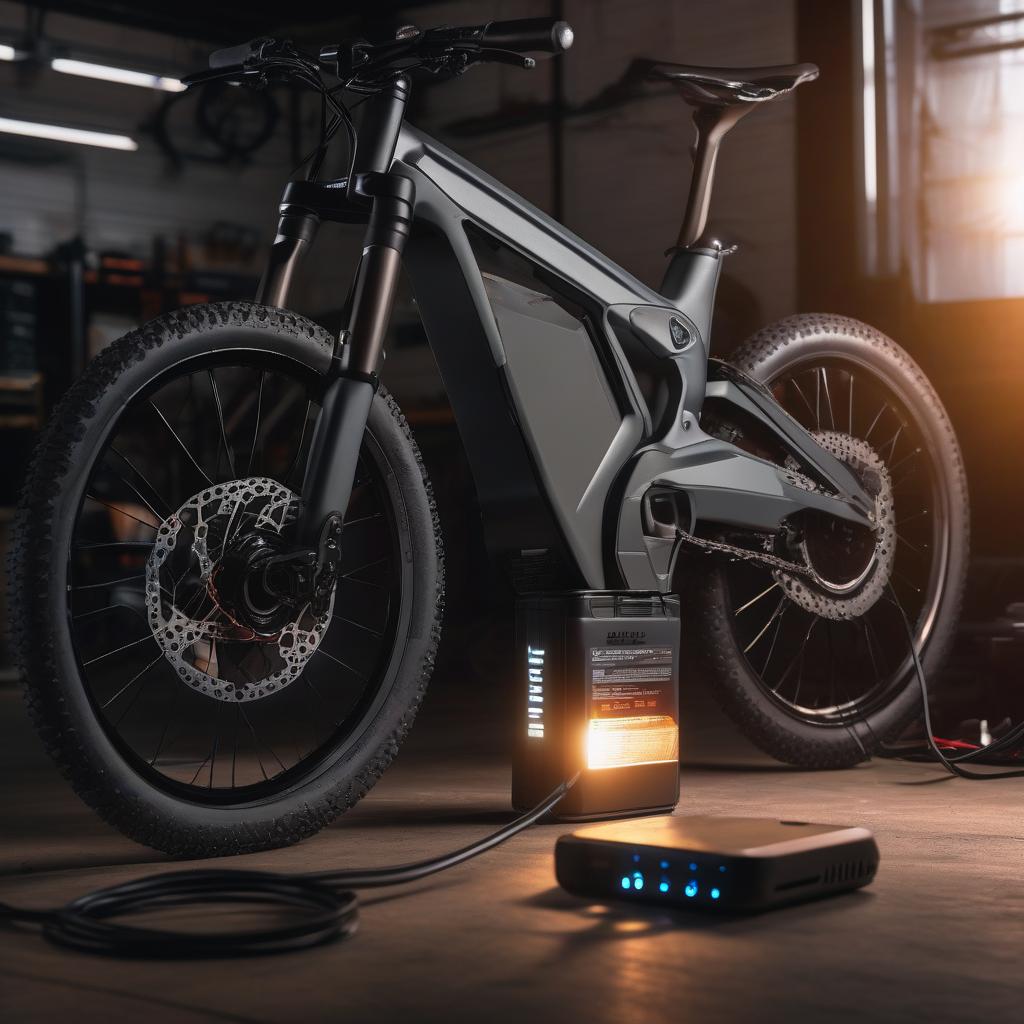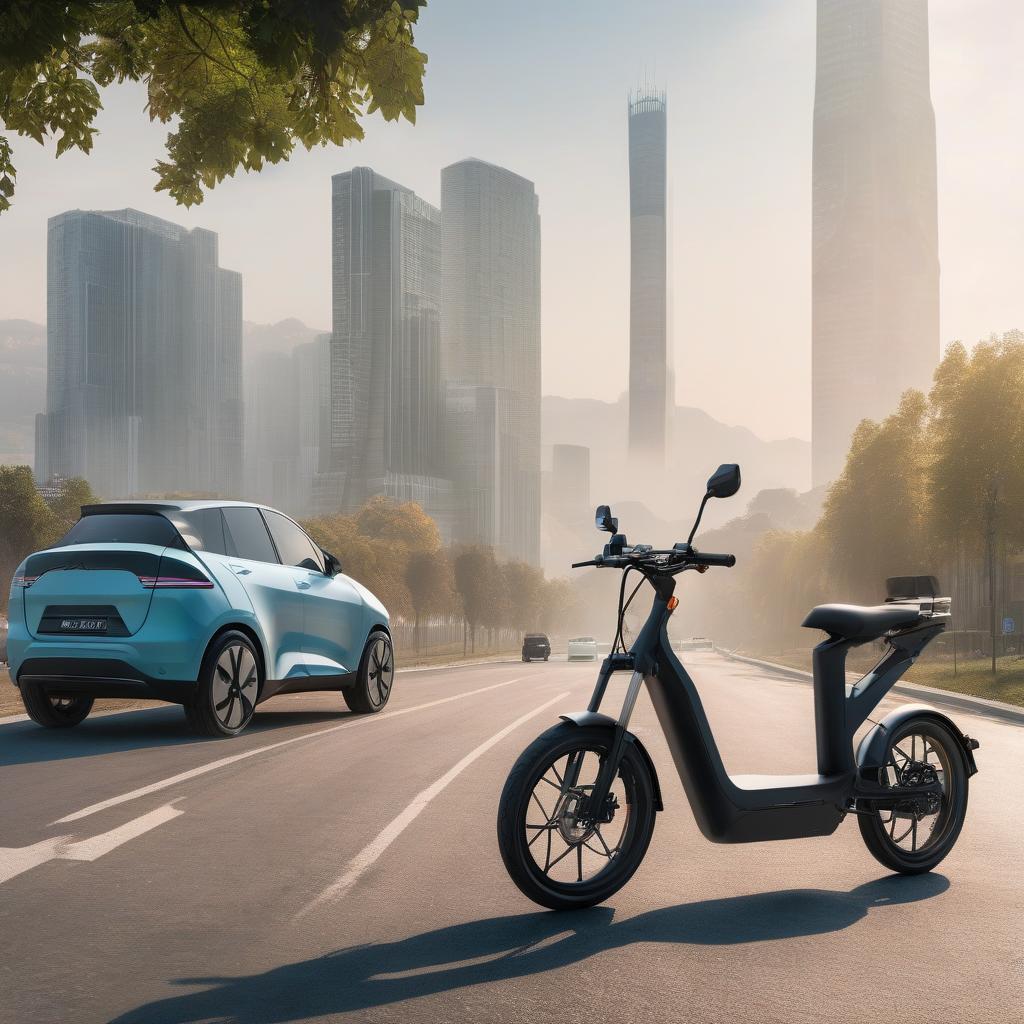Pedaling into the Future: Exciting Innovations in the Electric Bicycle Industry
The electric bicycle industry is charging full speed ahead, with innovations that are set to revolutionize the way we think about and use e-bikes. From cutting-edge battery technology to AI-powered riding experiences, the future of e-bikes is looking brighter (and more exciting) than ever. Let’s dive into some of the most promising developments on the horizon.
1. Next-Generation Battery Technology
The heart of any e-bike is its battery, and this is where we’re seeing some of the most groundbreaking innovations:
• Solid-State Batteries: These promise higher energy density, faster charging times, and improved safety compared to current lithium-ion batteries.
• Graphene Batteries: Still in development, these could offer even higher capacity and faster charging than solid-state batteries.
• Bio-batteries: Researchers are exploring environmentally friendly options made from organic compounds, potentially reducing the environmental impact of e-bike production.
2. Smart Integration and Connectivity
E-bikes are getting smarter, with features that enhance both safety and user experience:
• AI-Powered Riding Assistance: Systems that learn your riding style and automatically adjust power output for optimal efficiency and comfort.
• Advanced Navigation: Built-in screens with real-time traffic updates, air quality information, and suggested routes optimized for e-bikes.
• Theft Prevention: GPS tracking, smart locks, and alarm systems integrated directly into the bike’s frame.
3. Solar-Powered E-Bikes
Imagine an e-bike that can charge itself while you’re riding or parked outside:
• Solar Panels: Integrated into the frame or wheels, these could extend the bike’s range or even eliminate the need for plug-in charging in some cases.
• Regenerative Braking: Already used in some models, this technology is becoming more efficient, converting more kinetic energy into stored electrical energy.
4. Advanced Materials
The bikes themselves are evolving, with new materials offering improved performance:
• Carbon Nanotubes: Stronger and lighter than traditional materials, these could lead to ultra-lightweight e-bikes with extended range.
• Shape Memory Alloys: These materials can “remember” their shape, potentially leading to self-repairing frames or adaptable geometries for different riding conditions.
5. Augmented Reality Displays
Helmet visors or glasses with heads-up displays could provide:
• Real-time performance data • Navigation information • Traffic and obstacle alerts
6. Modular Design
The future of e-bikes might be mix-and-match:
• Interchangeable Parts: Easily swap out motors, batteries, or even entire drivetrains to upgrade your bike or adapt it for different uses.
• Convertible E-Bikes: Models that can transform from a city commuter to an off-road adventure bike with a few quick adjustments.
7. Improved Motor Technology
E-bike motors are becoming more powerful, efficient, and versatile:
• Multi-Gear Hub Motors: Offering the benefits of geared hubs with the simplicity of direct drive motors.
• Ultra-Compact Motors: New designs that integrate seamlessly into the bike frame, making e-bikes indistinguishable from traditional bicycles.
8. Self-Driving Capabilities
While fully autonomous e-bikes are still a distant dream, we’re seeing steps in that direction:
• Balance Assist: Systems that help keep the bike upright at low speeds or when stopped.
• Collision Avoidance: Sensors and automatic braking systems to prevent accidents.
9. Eco-Friendly Manufacturing
The industry is moving towards more sustainable production methods:
• Recycled Materials: Frames and components made from recycled plastics and metals.
• Biodegradable Parts: Non-critical components that break down naturally at the end of the bike’s life.
10. Energy Harvesting
Beyond solar power, e-bikes might generate energy in creative ways:
• Piezoelectric Systems: Converting vibrations from riding into electrical energy.
• Wind Energy: Small turbines that generate power as you ride.
Conclusion: A Bright Future for E-Bikes
The electric bicycle industry is on the cusp of a new era, with innovations that promise to make e-bikes more efficient, user-friendly, and integrated into our daily lives than ever before. From self-charging bikes to AI-assisted rides


